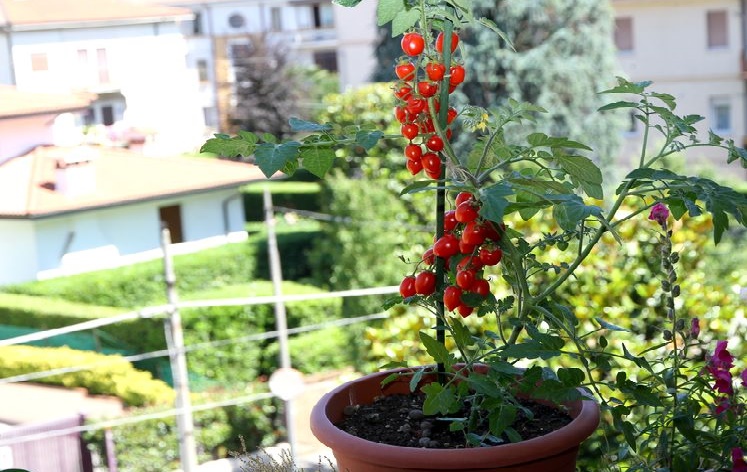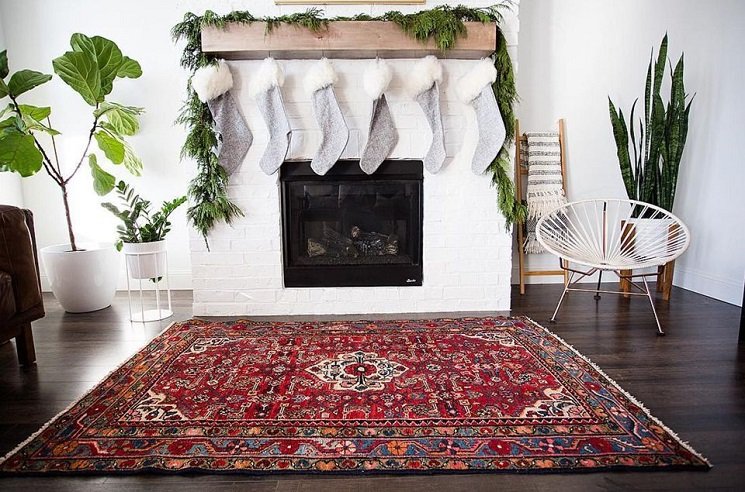Permaculture ideas (self-sufficient techniques for cultivation, alternative energy, etc.) for people who rent an apartment or house. It is necessary to clarify that these techniques can also work for any type of home.

How to take advantage of permaculture in any home?
Permaculture is for everyone. It is one of the best ways to produce food, minimize our impact on the planet, and move towards a self-sustaining model that focuses on people and nature, rather than profit. However, it can sometimes seem very difficult to get started with permaculture.
This is especially true if you live in a rented home. Unless you have a susceptible landlord and the luxury of a secure long-term lease, it can seem daunting, even pointless, trying to institute permaculture practices on a plot that you may have to get out of in as little as a month.
Pots
One of the easiest ways to follow the permaculture principle with growing your own food on a rented property is to plant in pots. There are many species of harvestable plants that are perfectly happy in pots, and it means that you can move them to another property if you leave your current home, as well as move them around your garden at different times of the year to give them the best growing conditions, so they can grow. access to sunlight early in the morning in spring, and shade from the sun’s rays in the afternoon in summer.
Growing edible plants in pots is a great solution for those who may have a small patio or balcony just as outdoor space. And don’t worry about buying expensive new pots, you can find them cheaper at garden centers that have been marked with surface damage. If not, anything can serve as a planter with drainage holes drilled through the bottom.
Most herbs do very well in pots . Avoid potting mint with other herbs, as it has a tendency to dominate one growing location. Citrus trees can grow well in pots, as can laurel and fig trees. When it comes to vegetables, green leafy vegetables like spinach, kale, and lettuce grow well in pots, while climbing crops like tomatoes and beans, as well as root crops like potatoes and radishes are also viable.
The potted plant benefits from good organic compost and a regular “fill-in” with compost tea. Reduce water consumption by placing your pots on plates or trays so that the water that seeps on the way through the pot is captured and is still available for reabsorption by the plant.
Seeds
If you are able to plant directly in the garden, build a habit of collecting and storing the seeds of your most successful and native favorite plants. The seeds can be stored in the refrigerator for several years and will still be able to germinate when planted, this is so that you can establish your preferred varieties when you move to another property. You can also take cuttings when you move out.
Hen house
If your landlord allows you to keep chickens on your rental property, you can build a chicken coop that can be transported with you when you move out. You save on building another, and the chickens will appreciate the familiarity of the chicken coop, reducing the stress of relocation.
Water collection barrel
While you probably won’t be able to install a large water tank on the property, you can still harvest rainwater in a barrel. This can provide water for irrigation, for your chickens if you have them, and even for some household chores like washing dishes and flushing in the bathroom, depending on the amount of rain your locality receives. Your owner might allow you to divert the flow from the gutter into the barrel.
Grow beds
While you can renew every twelve months, you never know when you will need to move. Perhaps the owner has decided to sell the property, or you receive a stroke of luck that will allow you to buy your own place.
Due to this potential short timescale, you want to get maximum productivity out of your garden beds quickly. Composting and company planting are your tools to do it.
By adding a good amount of organic compost to the beds, and the plants that complement each other, you are ensuring that the soil has a sufficient level of nutrients for the plants to thrive. These techniques mean that you can densely plant your beds and get a bigger harvest, even if you only have a small space.
Practice the best techniques
If you have a short-term lease or the landlord is opposed to making changes to the land, you can still use your rental property to further your permaculture goals, by using your time to hone your observation skills. Every piece of land where soil is available to plants, no matter how small, will have life in it.
Take the time to become aware of what is happening on earth, the plants that colonize, the insects and other wild animals that visit it, the path of the wind, the rain and the sun and act accordingly. These observation skills will come in handy for future permaculture projects when you are living in a property that is more suitable for them.
Community
If the landlord does not allow you to alter the rental property for your permaculture project, it gives you the opportunity to study community initiatives so you can still grow your own food. Some towns and cities have public space that has been turned over to community gardens.
This gives you the growth space, as well as a group of like-minded people to share your permaculture tips and techniques with them. You could also have a land payment project in your local area, where those with more space “rent” the land to those who don’t have access to land so they can grow food. Generally, you will have to pay the “rent” with a small proportion of your harvest.
Of course, if the landlord does not object, you could also institute more permanent permaculture practices in their rented garden, with a view to a long-term project that will feature perennials and a garden that will mature over the years. If you have to, or can choose to leave the property, this sustainable garden providing food for the inhabitants of the rental property can be seen as a gift to future occupants. Who knows, it could open someone’s eyes to the beauty of permaculture and inspire them in their own endeavors.








